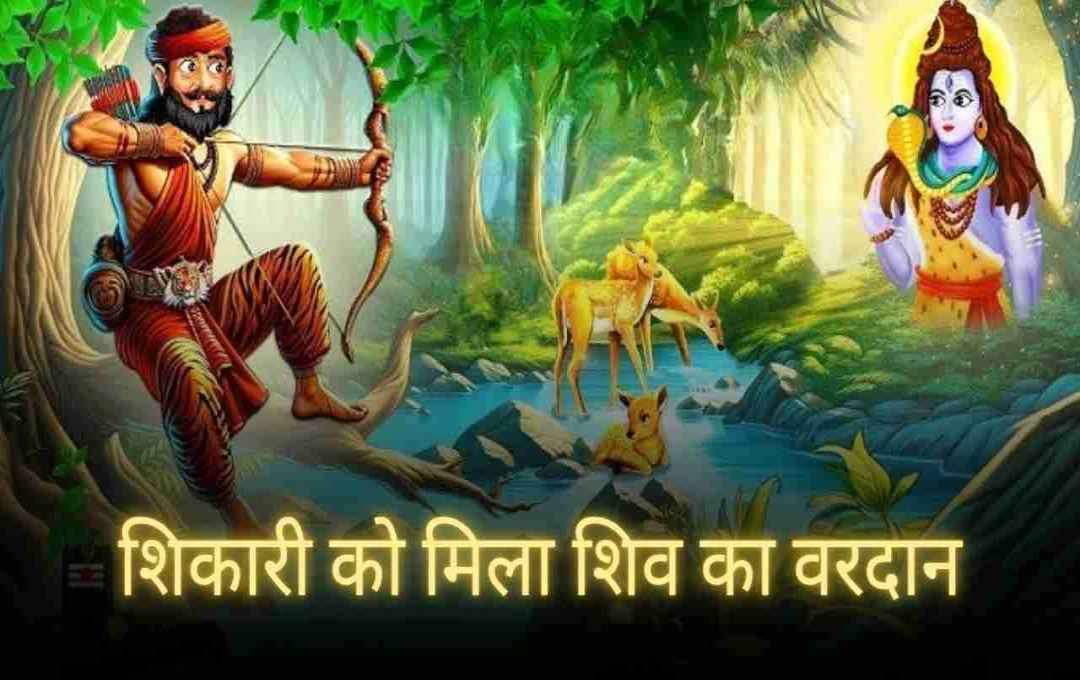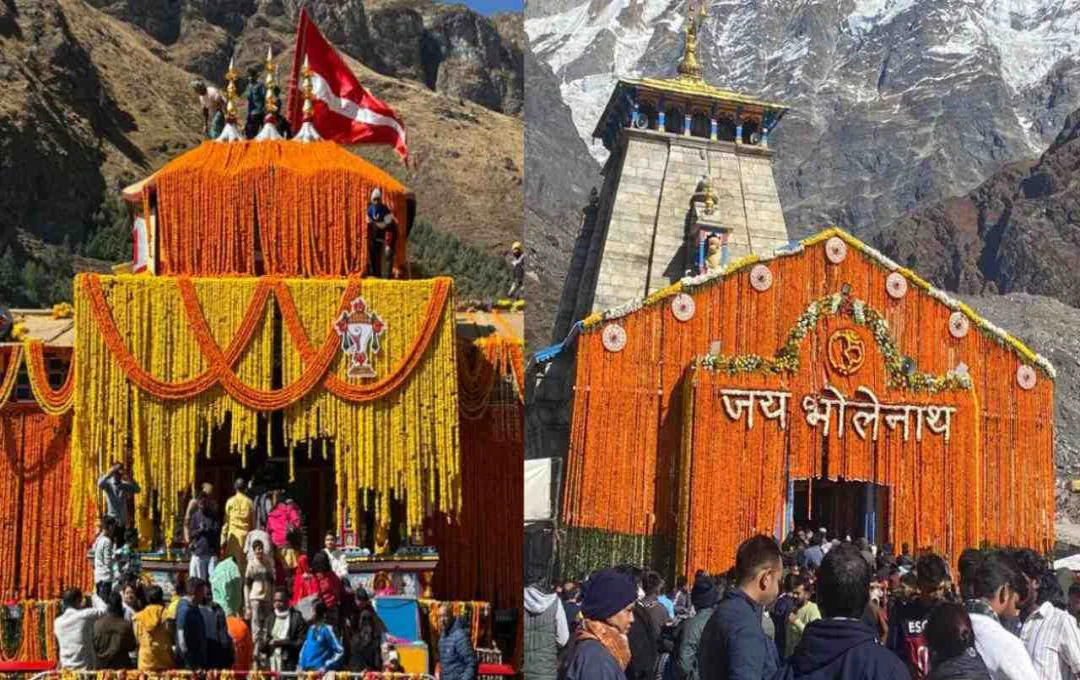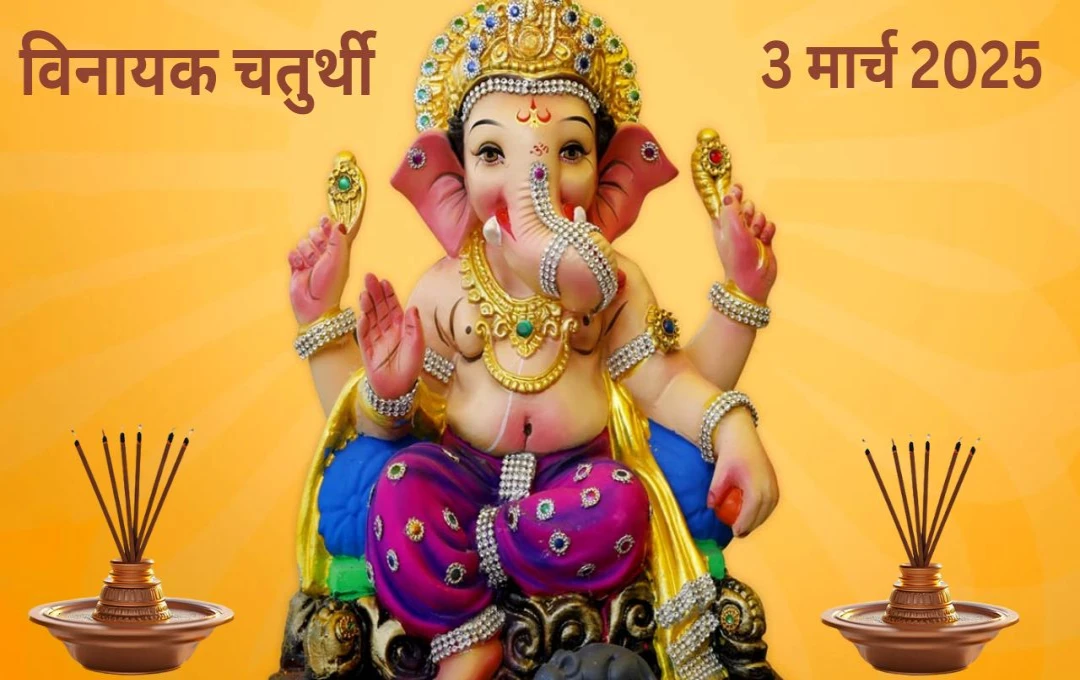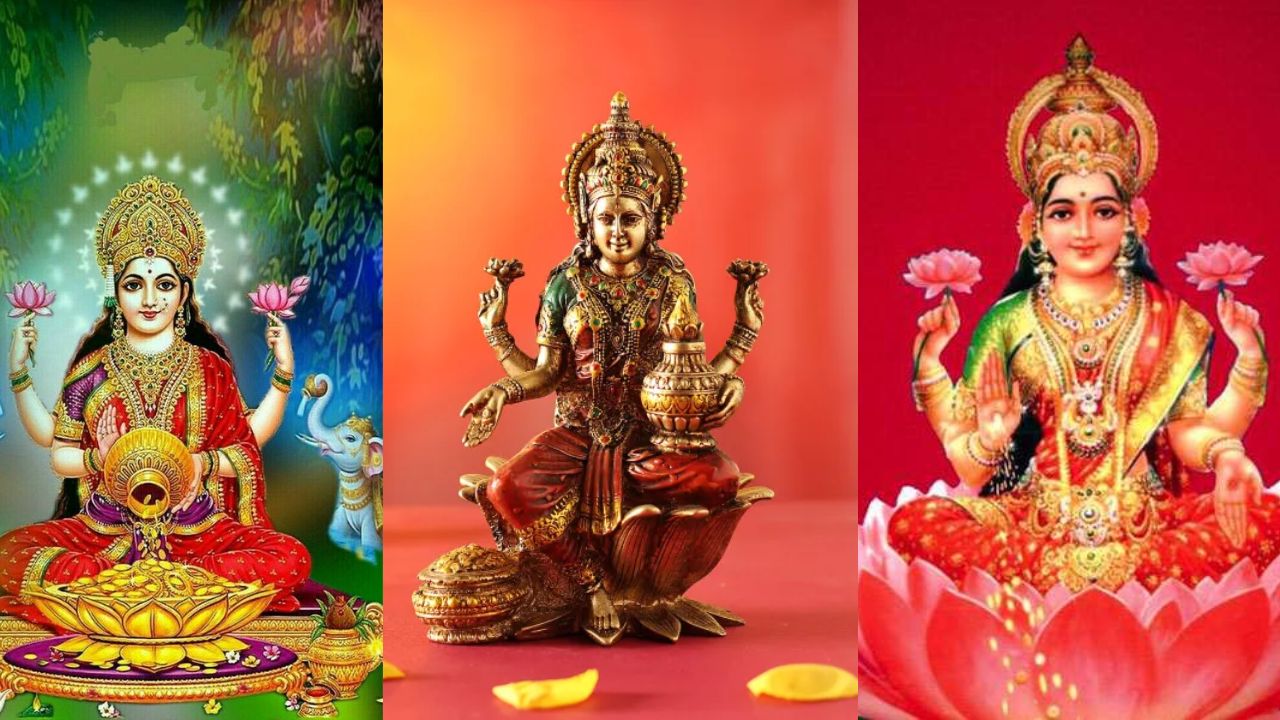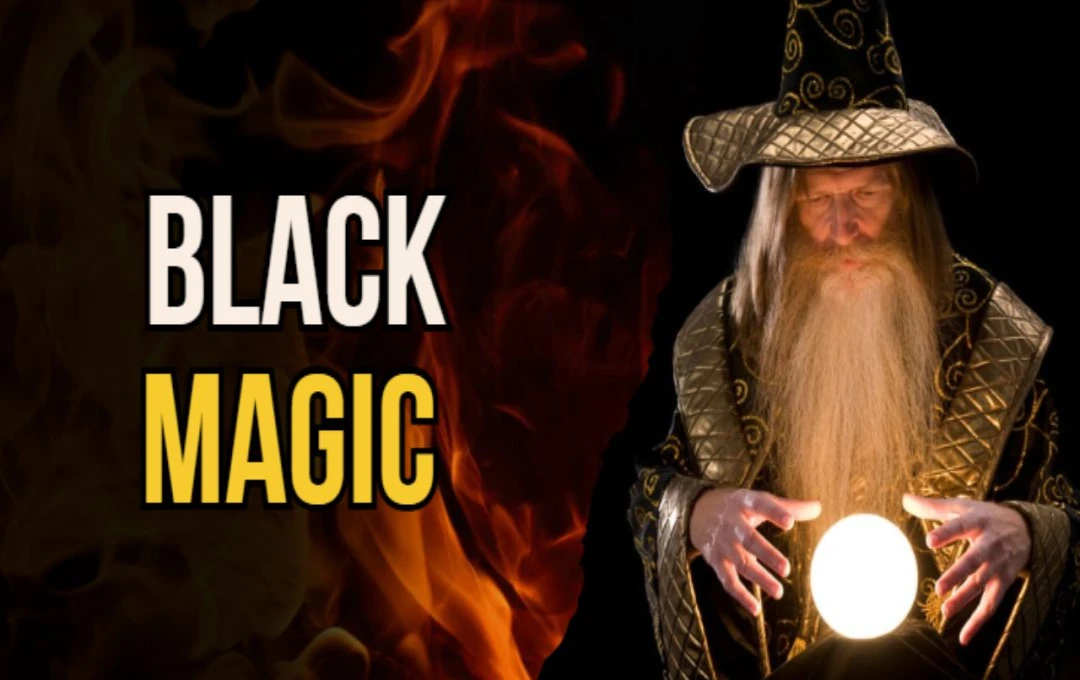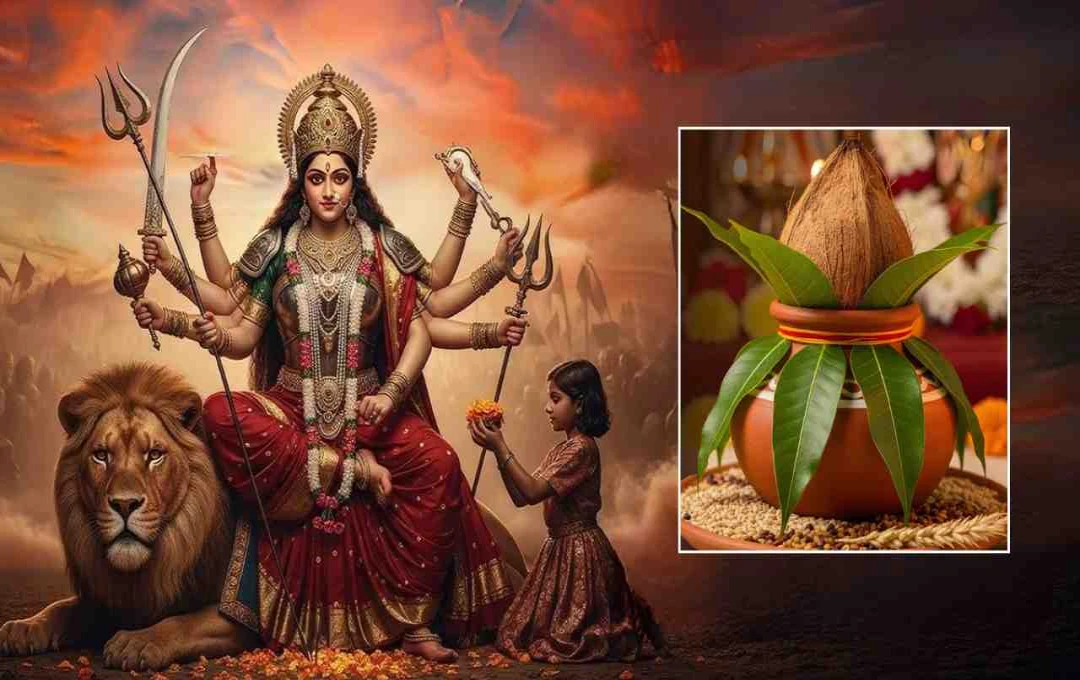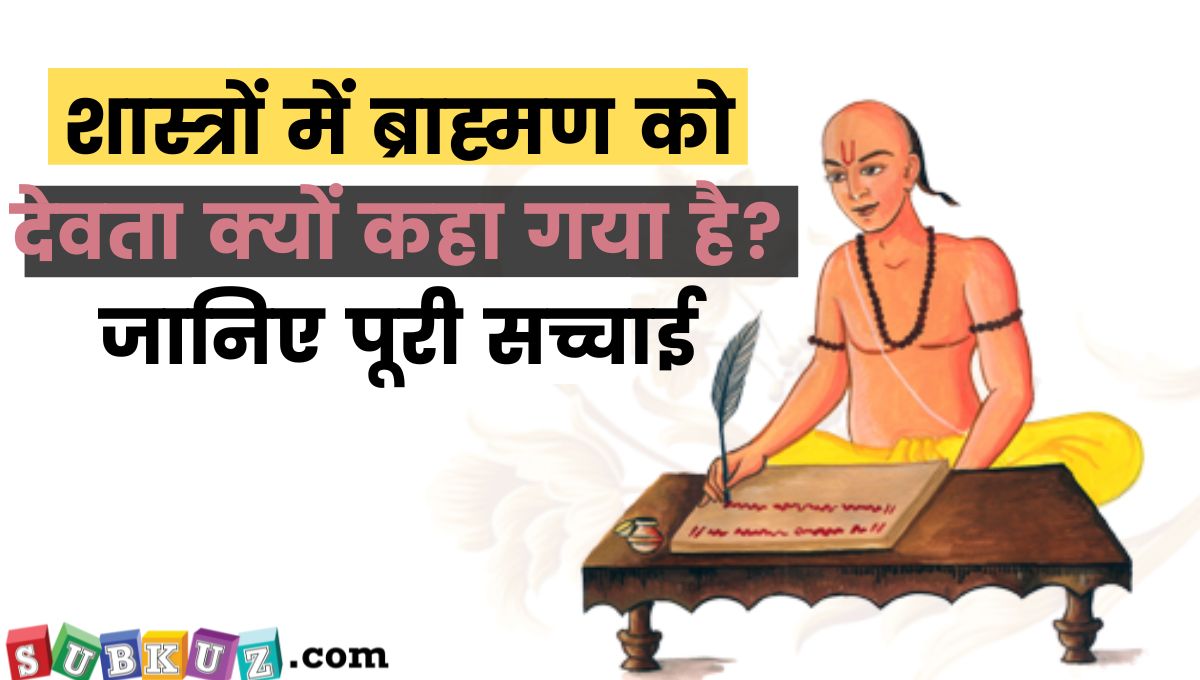Shivratri, which falls in the month of Shravan, holds special significance in Hinduism. Like every year, this time too, millions of devotees are engrossed in the worship of Lord Shiva. On this day, offering water on the Shivling, offering Bel leaves, and fasting are of particular importance. Notably, the recitation of the Vrat Katha (fasting story) is also considered very important in the worship on this day. It is believed that listening to the Sawan Shivratri Katha destroys the sorrows of life and bestows the special grace of Lord Shiva.
The Vrat Katha is related to a hunter
This holy story begins with an ordinary hunter named Chitrabhanu. He used to hunt in the forest to feed his family. One day, he was imprisoned for failing to repay the money he had borrowed from a moneylender. Coincidentally, that day was the festival of Mahashivratri. While he was in prison, he learned about the glory of Lord Shiva and the significance of the fast. He kept listening, and devotion to Lord Shiva awakened in his mind.
Released by Evening
In the evening, the moneylender asked him for the money again, then Chitrabhanu promised that he would repay the entire debt the next morning. Trusting him, the moneylender released him. Chitrabhanu went straight towards the forest so that he could hunt some animal and repay the debt.
Spent the night on a Bel tree
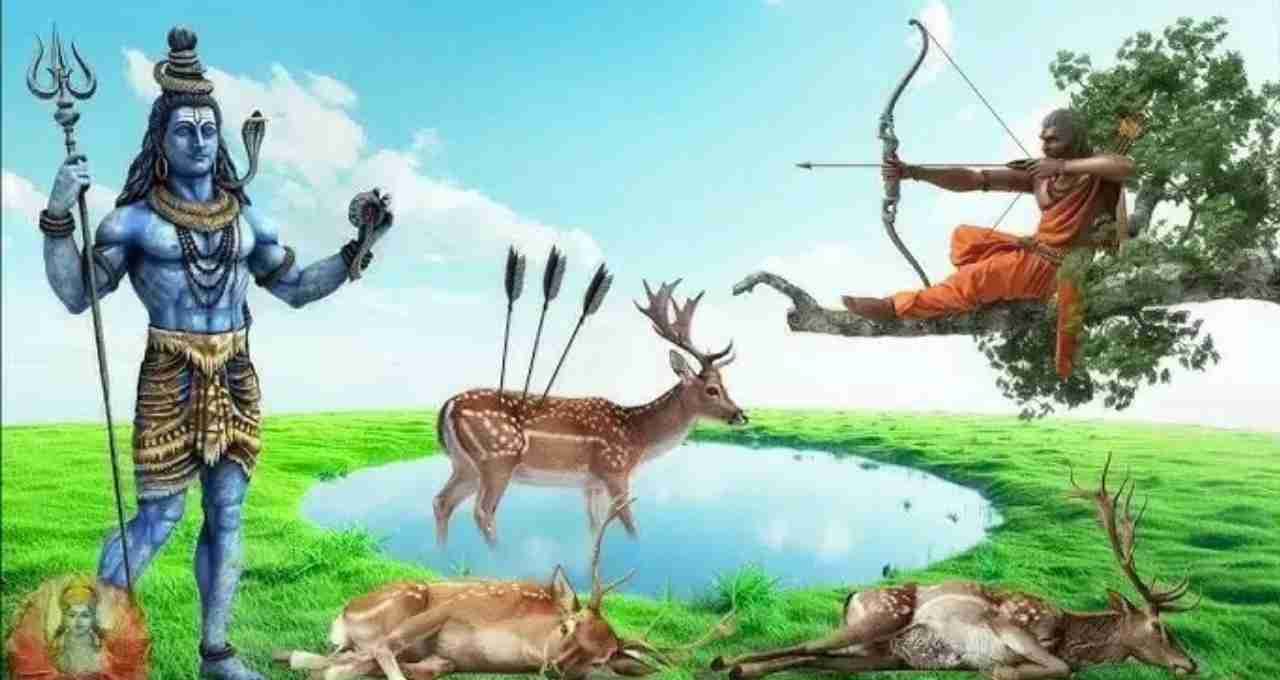
In the evening, the hunter reached a reservoir and climbed a Bel tree. He hoped that some animal would come to drink water at night. Under the same tree, a Shivling was installed, about which Chitrabhanu had no information. When the hunter broke the branches of the tree, Bel leaves and drops of water started falling on the Shivling. In this way, unknowingly, his first quarter (prahar) of worship was completed.
Pregnant Doe Arrived in the First Quarter
In the first quarter of the night, a pregnant doe came to drink water. The hunter prepared to shoot an arrow, but the doe pleaded that she be allowed to give birth to her offspring. She promised to return later. The hunter's heart melted and he let her go.
Compassion in the Second and Third Quarters
In the second quarter, another doe arrived. She had come in search of her mate. She also promised to return, and the hunter let her go too. In the third quarter, a doe arrived with her children. The hunter prepared again, but the doe said that she would safely leave the children with their father. The hunter showed mercy for the third time as well. Amidst all these events, every time he broke something from the tree, Bel leaves and water kept falling on the Shivling, due to which his worship continued.
Deer Arrived in the Last Quarter
In the last quarter of the night, a deer came there. This time the hunter decided that he would not listen to anyone. But the deer said that his three wives had been given life by the hunter, so he should also be allowed to live a little longer so that they could all return together. The hunter forgave him for the last time too.
Lord Shiva was Pleased
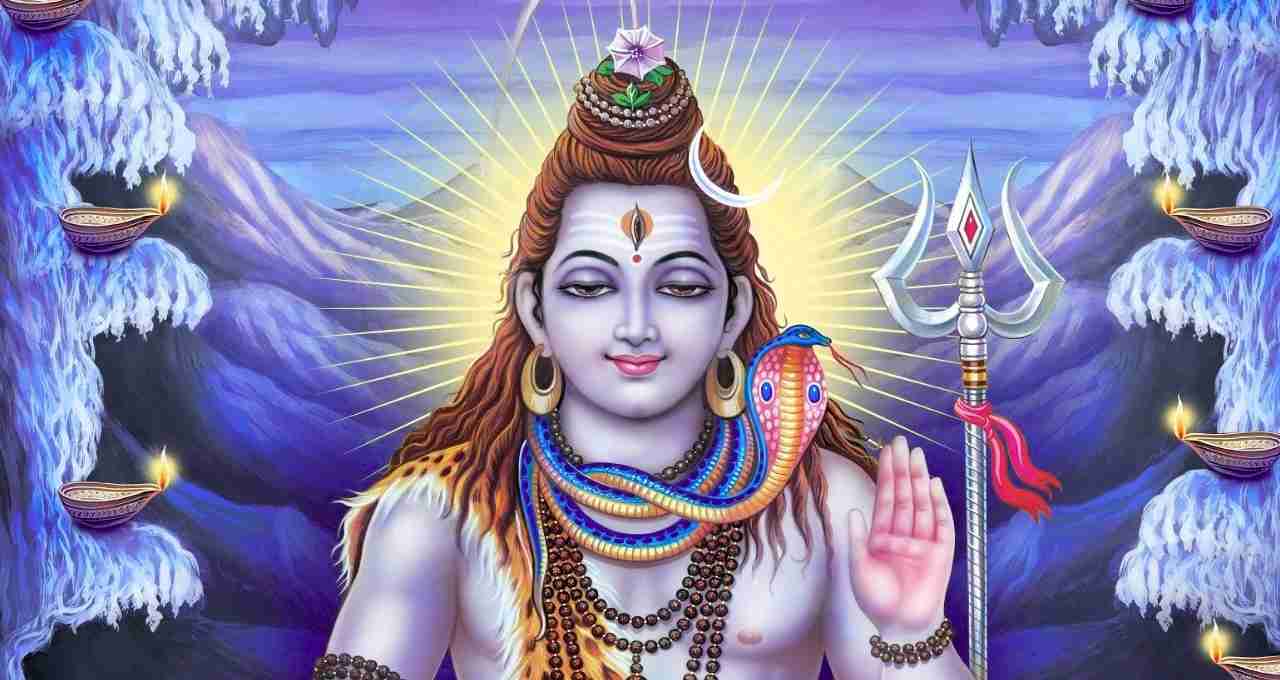
Soon after, that deer returned with his three wives and children. Seeing this, the hunter's eyes filled with tears. He understood that compassion and kindness are the true religion. At that very moment, Lord Shiva appeared and, pleased with the hunter's devotion and compassionate feelings, granted him a boon. He gave him a new name, 'Guh'.
Became a friend of Lord Rama
After Lord Shiva's blessings, Guh's life completely changed. He became absorbed in devotion to Shiva, and later he became the same Guh who became a close friend of Lord Rama. Guh is mentioned in the Ramayana when Lord Rama, along with Sita and Lakshmana, reach his region during their exile. Guh welcomes them with full respect and hospitality.
This story still holds importance in worship today
Listening to and remembering this story on the day of Sawan Shivratri is considered very auspicious. It is said that through this story, devotees experience the power of a true heart, kindness, compassion, and devotion. The one who listens to this story receives the special blessings of Shiva's grace and prosperity comes in life.
